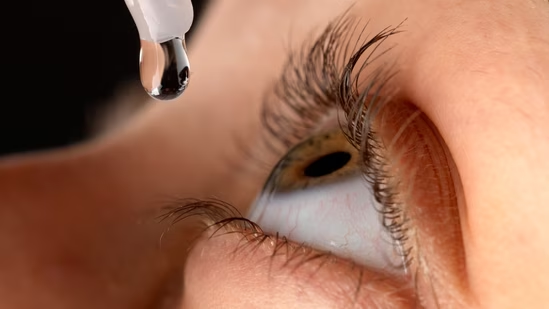5 september 2024 : If you find yourself frequently squinting while looking at your phone, reading labels, menus, or books, chances are you might have presbyopia. According to a report from the Community Eye Health Journal, presbyopia is the leading cause of vision impairment worldwide, affecting 1.8 billion people. Nearly everyone is likely to experience this condition if they live into their 50s and beyond. Despite wearing glasses or contact lenses, the reality of this age-related eye condition—described by the Mayo Clinic as the “gradual loss of your eyes’ ability to focus on nearby objects”—seems almost inevitable.
Mumbai-based Entod Pharmaceuticals has developed a potential solution with their new product, PresVu Eye Drops. What makes this upcoming product noteworthy?
Recommended by the Central Drugs Standard Control Organisation (CDSCO) and approved by the Drug Controller General of India (DCGI), these eye drops are claimed to eventually eliminate the need for reading glasses. Commenting on this milestone, Nikkhil K Masurkar, CEO of Entod Pharmaceuticals, stated to PTI, “This approval from the DCGI is a significant milestone in our mission to revolutionize eye care in India. Entod Pharmaceuticals’ PresVu eye drop is more than just a product; it’s a solution that can enhance the lives of millions by providing them with greater visual independence.”
Expert Insights
A similar formulation was approved by the US Food and Drug Administration (FDA) and launched in the US in 2022 under the brand name Vuity, which remains the only FDA-approved eye drop for treating age-related blurry vision.
With PresVu’s launch set for October, there is growing anticipation about its potential benefits. To get a deeper understanding, Dr. Purendra Bhasin, an ophthalmologist and founder of Ratan Jyoti Netralaya Ophthalmic Institute & Research Centre, shared his expert perspective on the effectiveness of these eye drops.
While Dr. Bhasin acknowledges the benefits of PresVu, he highlights some key considerations regarding its long-term efficacy. He explains, “These drops need to be used regularly. They’re available in the US market, and now they’re being introduced in India. However, it’s not a one-time solution that will permanently eliminate the need for glasses. You’ll benefit as long as you use them, but if you stop, the effects will cease.”
The Role of Buffer Technology and pH Balance
The eye drops feature a dynamic buffer technology that allows them to immediately adjust to the pH level of the tears, ensuring safety and consistent effectiveness. Tears typically have a pH level around 7.45, though it can range from 7.14 to 7.82.
Addressing the significance of the buffer technology and pH balance, Dr. Bhasin notes, “The buffering technology and pH balance are designed to make the drops less irritating. However, these features do not directly impact vision correction; they only enhance comfort during use.”
Long-Term Use and Potential Side Effects
When asked about the possible long-term side effects of continuous use, Dr. Bhasin stressed the need for larger clinical trials to thoroughly assess any potential risks. He also advised that while these drops might be useful for certain conditions like glaucoma, they should only be used under medical supervision and with a prescription.
Understanding Presbyopia
Presbyopia is a natural part of aging, where the eyes gradually lose the ability to focus on nearby objects. It typically begins to manifest in the early to mid-40s and worsens until around age 65. This condition occurs due to the hardening of the lens inside the eye, which makes it difficult for the lens to change shape when focusing on close tasks like reading.
Common symptoms include:
- Difficulty reading small print
- Needing to hold reading material further away
- Headaches or eye strain after reading
Currently, presbyopia can be corrected with reading glasses, bifocal or progressive lenses, contact lenses, or surgical treatments.

